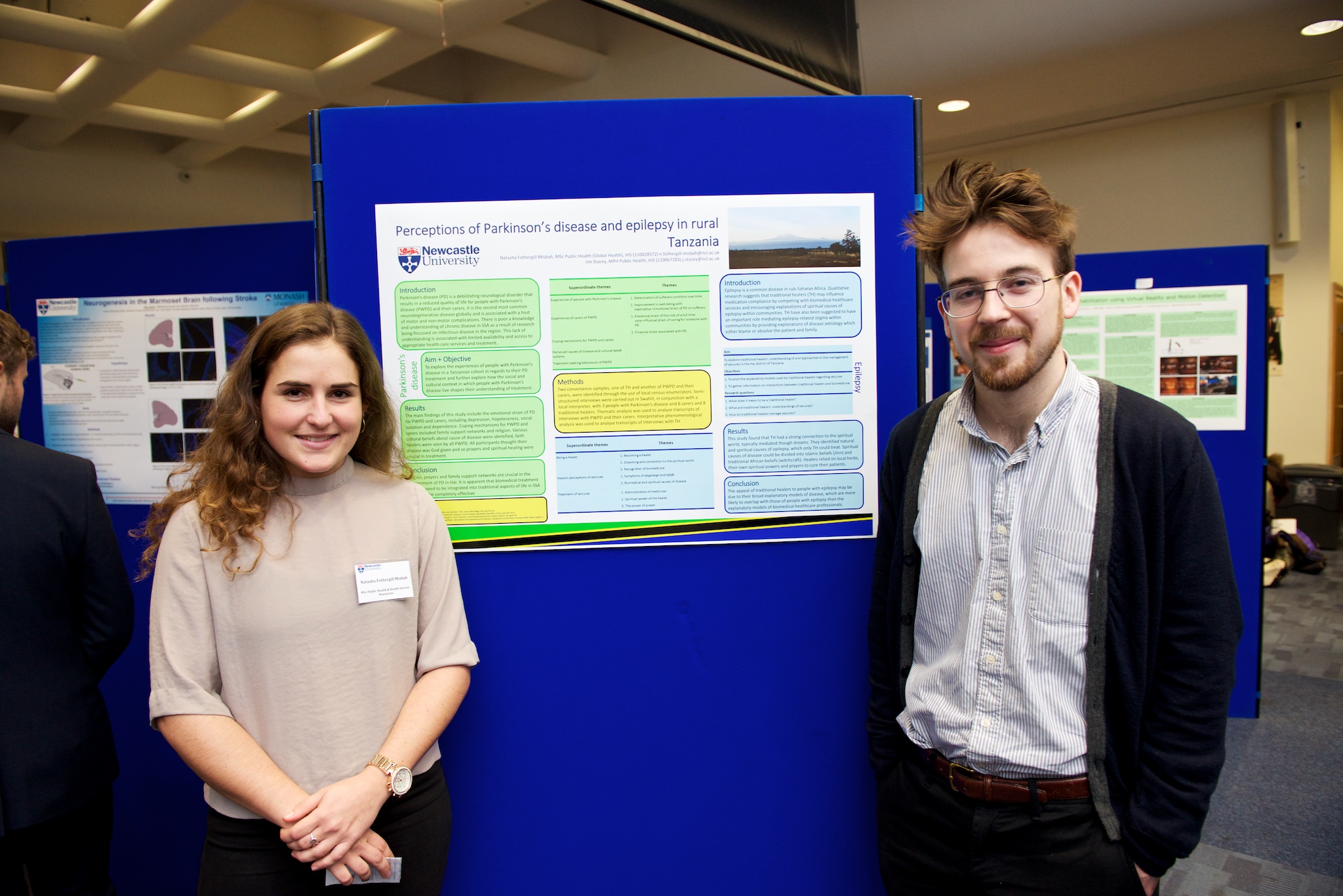2016 Participants
 Natasha Fothergill Misbah and Jim Stacey
Natasha Fothergill Misbah and Jim Stacey
- MSc Public Health & Health Service Resources
- Perceptions about Parkinson’s disease (PD) and its treatment in a rural area of Tanzania
Parkinson’s disease (PD) is a neurological disorder that results in a reduced quality of life for people with Parkinson’s disease (PWPD) and their carers. Diseases associated with later life were thought to be rare in sub-Saharan Africa (SSA), however, ageing populations have led to a higher prevalence of non-communicable diseases.
SSIs were conducted with 3 PWPD and 6 carers in Hai, Tanzania in order to explore their perceptions of PD and its treatment. Interviews were conducted in Swahili with a translator and took place in participants’ own homes.
There were misconceptions about the cause of disease, ranging from cold weather to evil spirits. PWPD and carers displayed various treatment seeking behaviours, including biomedical services, traditional healing and faith healing. A lack of health services and social support was identified as well as a limited understanding of PD among healthcare workers.
PD knowledge is minimal in Tanzania; PWPD and carers have their own coping mechanisms with regards to their illness, including religion, prayers and family support networks. Cultural beliefs play a big part in the health and illness beliefs of this population and it is crucial that biomedical treatment practices are incorporated into traditional aspects of life.
Funding source: University Development Trust & the Henderson Fund
Project Supervisors:Dr Katie Brittain, Prof Richard Walker, Dr Claire Dickinson, Dr Richard Lee
